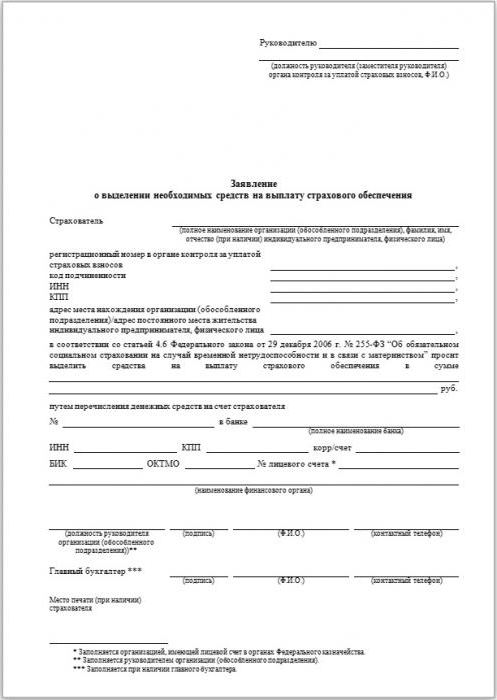At present, it is important for each person to have certain guarantees that can not only provide financial protection for property, but also provide citizens with confidence in the future and that even with full or partial disability, they will receive support from the employer or the state. This can be achieved thanks to the insurance system existing at the expense of contributions from interested parties.
Description
It is important for every person who has decided to conclude an insurance agreement or has already signed it to know what insurance coverage is. This is an insurance payment, which in property insurance is sometimes called insurance compensation. It indicates the degree of valuation of the property prescribed in the agreement (insurance amount) in relation to its actual value.

In other words, this is the value expression of a certain amount in a certain currency, for which the insurance agreement is concluded. The concept of insurance coverage is used to establish the general obligations of the insurer in the totality of the types of insurance.
If the policyholder incurs losses, he may receive compensation both in cash and in kind. For example, in automobile insurance, a company may, instead of paying compensation, repair a car or replace its parts.
To receive compensation payments, the occurrence of an insured event is necessary - an accident prescribed in the contract. After the occurrence of this event and its recognition as an insurance policyholder receives the right to compensation for losses from the insurer.
Forms of insurance coverage
Occurring insurance events are divided into various groups. The most popular classification of forms by object of insurance, which includes the following categories:
1. Property insurance. The main purpose of property insurance is official protection of real estate and compensation for possible damage. Its property includes any property owned by the policyholder:
- transport;
- Residential Properties;
- land;
- the crop;
- animals;
- inventory;
- equipment etc.
2. Personal insurance. Allows you to insure the health and even human life. It includes:
- health and life insurance;
- social insurance;
- pension insurance;
- health insurance, etc.

This type of insurance allows you to provide protection against possible risks that threaten a person’s health, health and, in some cases, life. Since it is impossible to objectively evaluate life or death, insurance amounts are calculated taking into account the financial capabilities of the insured and his wishes. In this case, the insured individual can only try to prevent financial difficulties that will be likely after a loss of working capacity or death.
Insurance systems
The term "insurance system" is used to formulate a method of compensation for losses incurred. Depending on the system, the ratio between insurance coverage and real loss is calculated. For example, if an object valued at 10 million rubles is insured with 5 million, then in this case the level of insurance coverage will be 50%.

There are several systems using various loss compensation methods.
Actual value insurance
This type of insurance is quite widespread. The insurance system begins to apply after the valuation of the property on the same day that the contract was concluded and signed. The amount of compensation when an insurance event occurs will be the actual value of the object. Payment will be made in full.
Proportional liability system
When performing incomplete property insurance of various business sectors, a system of proportional liability is often used. Compensation payment in this case will be that fraction of the loss, which will be equal to the ratio of the insurance assessment and the real value of the property. It follows that the ratio of insurance payments to the losses incurred will correspond to the ratio of the insurance amount to the value of the property.
First risk system
The essence of this system is that damage to property within the insurance amount specified in the agreement will be paid in full (the so-called first risk), and losses beyond the agreed amount (the so-called second risk) will not be compensated. This type of insurance is most often used in the preparation of contracts for the preservation of personal vehicles and real estate.

Suppose the sum insured at the conclusion of the agreement was 10 million rubles. Then a loss of 5 million rubles will be reimbursed. However, if the amount of damage is 14 million rubles, the insurer will pay the victim 10 million rubles, and the remaining amount (4 million rubles) will remain outstanding.
Cost Insurance
The system used for insurance at replacement property value is used when concluding and signing an agreement stating that the amount of insurance compensation is the price of the property, excluding accrued depreciation. It turns out that the amount of compensation payments will be equal to the cost of a new object of the appropriate type.
Liability system
This insurance system is used quite rarely. The method has developed historically and was used in the USSR until 1934 when registering insurance for vegetables and horticultural crops in agriculture. The essence of the method is to determine in the contract the minimum and maximum amount of compensable damage.
Double (triple) insurance system
Sometimes there are situations when the policyholder for the same object concludes contracts with different insurers. As a result, the total accumulated amount of compensation payments from all insurance companies could theoretically exceed the real value of the object. In such a situation, if an insurance event does occur, insurance compensation is distributed proportionally between insurers according to the amount of payments that appear in the contracts, thereby reducing the amount of insurance liability for each of them.
Suppose the real value of a property is 10 million rubles. An individual concluded an agreement with one insurance company for 9 million rubles, and with another - for 6 million. Then, in the event of the complete destruction of the insured property, the total amount of insurance coverage from both insurers will be 10 million rubles. The first company will pay 6 million rubles, and the second - 4 million rubles.
Some of the above insurance systems can be used when concluding personal insurance agreements (and not just in property insurance).
Contract execution
The agreement form is always approved by the regulations in force in the insurance company and is a predefined document of a certain type proving the fact of insurance.

Mandatory property insurance agreement or personal security agreement must contain information about:
- temporary terms of insurance;
- parties involved in the registration of insurance;
- property for which an agreement is drawn up;
- the amount and procedure for payment of insurance compensation;
- bank accounts;
- insurance events;
- amount and frequency of payment of contributions.
The agreement is certified by the signatures of all parties and the seal of the insurer.
To draw up an agreement, the policyholder must write a statement indicating all insurance conditions. The agreement becomes effective after the insured person has paid the prescribed insurance premiums and affixed the signatures of the parties involved. After this, the policyholder receives an insurance policy - a document that confirms the fact of signing the insurance agreement. It contains all the information specified in the insurance contract.
The procedure for payment of insurance coverage
The main debt of the insurer is to make compensation payments in situations when an insurance event occurs.
An insurance payment is a certain documented amount (can be expressed both in cash and in kind) specified in the agreement or approved by the Federal Law “On the organization of insurance business in the Russian Federation”. It is paid by the insurer to the person who has signed a property insurance agreement with him (in some cases, an individual insurance agreement).
The limit value of the sum insured paid by the company as a result of damage to the insurance object is specified in the contract, which also indicates the duration of the agreement. In order to receive compensation insurance, the insured must collect all documents approved by law and proving the occurrence of the insured event, as well as present an identity document and insurance policy.
The insured amount agreed upon in the agreement may be paid in Russian currency - rubles, unless another currency is indicated in the contract. In case of delay in compulsory payments, the insurer must, according to Article 395 of the Civil Code of the Russian Federation, pay a penalty, sometimes presented as a percentage of the amount not paid on time (if this is provided for by the rules of the agreement).
Property Insurance Payments
Insurance coverage is a concept that is most often called “insurance compensation” when registering property insurance. This name is closer to the point, since it incurs losses incurred in case of damage to property owned by the policyholder.
After the insurance event has occurred, the policyholder is obliged to notify the insurance company specialist about his occurrence for the time period specified in the agreement. You can do this in different ways: by using a phone call, letter, or with a personal visit. After that, an application form for the payment of insurance coverage, the original insurance policy and independent conclusions of the authorized bodies on the causes and circumstances of the accident are presented.

After receiving the application, the representative of the insurer draws up an insurance certificate to which he attaches various evidence documents: real estate devaluation certificates, acts on the destruction of property, independent examination reports, loss and insurance amount calculations.
Then, within a week (unless otherwise specified in the agreement), funds are allocated for the payment of insurance coverage either in cash or in non-cash form.
Damage shall be paid within the limits of the insurance amount specified in the agreement. This may include expenses incurred by the insurer during attempts to save the property, even if these measures did not give a positive result. Insurance indemnity in the form of cash may be replaced by property similar to that lost.
Payments in individual insurance
The designation “insurance amount”, as well as the concept of “insurance coverage”, is a synonym word for the phrase “payments made under an individual insurance agreement”. In this case, the insurance company undertakes to pay once or at a certain frequency the amount of money stipulated by the agreement, depending on the terms of the contract in which the established age has been reached, damage to the health of the insured person has occurred, as well as in the event of another insurance event. Pensions can be paid, annuities - fixed amounts paid with a certain periodicity, annuities - consecutive periodic payments.
Withdrawal of payments from the insurer
The insurance company has the full right not to pay insurance coverage. This is permissible in the following cases provided by law:
1) if the policyholder has not warned about the occurrence of the insured event within the agreed time frame;
2) if the insured event occurs due to intent on the part of the insured;
3) due to gross negligence of the insured (insufficient reason for refusal to pay compensation in individual insurance);
4) when the action of force majeure occurred:
- military maneuvers
- nuclear explosion,
- Civil War;
5) if the confiscation of property or its destruction was carried out by authorized state bodies.

In other situations, the insurer is obliged to reimburse in full all losses incurred by the insured person, beneficiary or policyholder.
Conclusion
Insurance coverage is a concept that has several meanings. In some cases, it is used to indicate the amounts paid in personal insurance, in others it indicates the ratio of the insurance assessment to the full value of the insured property in property insurance. Insurance coverage can be paid both in cash and non-cash, as well as in kind, and the total amount of compensation depends on the category of insurance event and the provisions specified in the agreement.
In some cases, the insurance company has the authority not to indemnify for damage to property or personal injury. Most often this is due to reasons for the occurrence of which the policyholder himself is to blame.